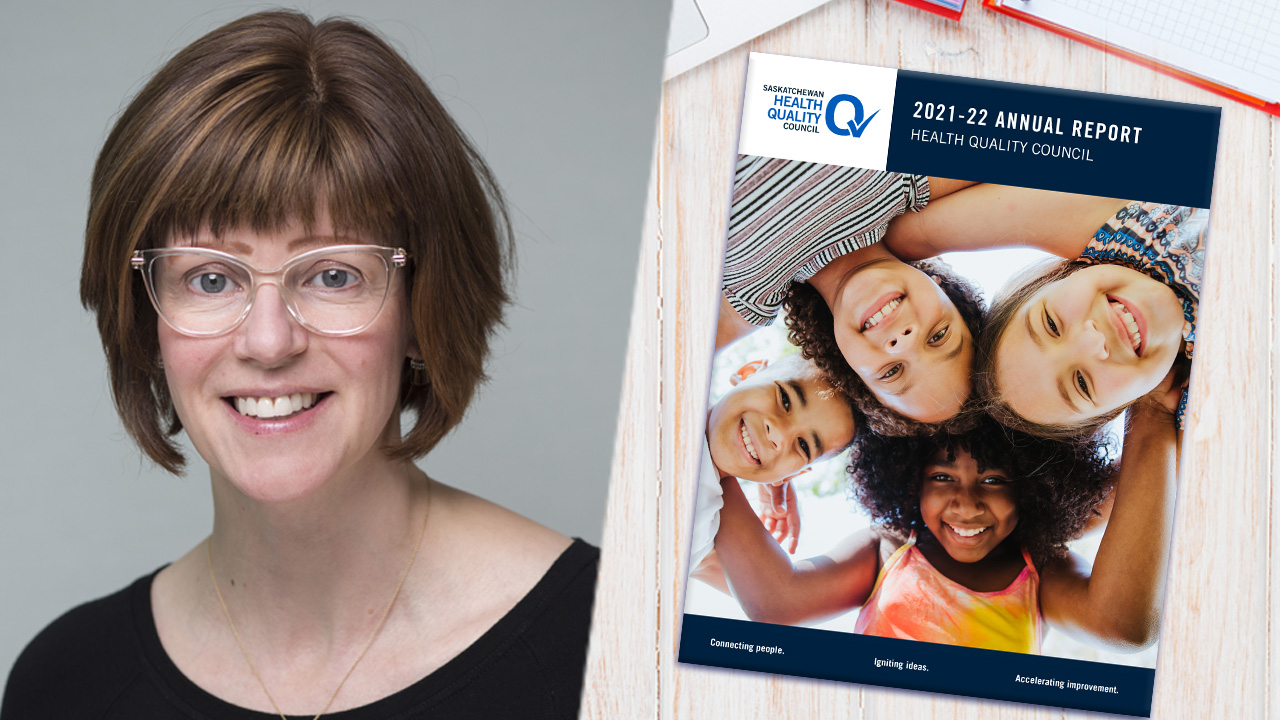Health Quality Council (HQC) is an organization that truly harnesses the power of partnerships. It’s a foundational element that dates back to the organization’s inception in 2002, and is certainly something I’ve recognized during my service as board chair.
Supporting the health system during COVID-19
Throughout the past year, a time of challenge, the theme of partnership took on a different meaning. In Saskatchewan, we continued to face the effects of the COVID-19 pandemic, though the announcement of vaccine approval was a welcome reprieve. As vaccination clinics across the province began to ramp up, HQC staff contributed their energy and talents to this monumental provincial effort, providing valuable project management and quality improvement input to the Saskatchewan Health Authority (SHA). Months later, as the proof-of-vaccination program was launched, HQC staff continued to help by providing program assistance to eHealth Saskatchewan. Fostering these relationships with our provincial partners is vital to maintaining a strong, capable health system and ensuring the future of quality health care in Saskatchewan.
The power of partnerships
Partnerships were evident in other areas of HQC as well. As part of our work with the provincial and inter-sectoral Drug Task Force, we launched a hotspotting project to identify areas with high risk of drug overdose or death. In 2021 we launched updated BestPractice Primary care Panel Reports, providing Saskatchewan’s family physicians with access to relevant information about their patients along with actionable education modules to understand report results. We also made great strides with the Health Research Data Platform, a collaboration born out of our work with the Saskatchewan Centre for Patient-Oriented Research (SCPOR). This tool, Saskatchewan’s first fully integrated multi-agency data platform, streamlines the process for researchers to access health data while also providing healthcare system providers and decision makers clinical intelligence to guide evidence informed practice and policy.
Research successes
One of HQC’s values is to spread a passion for learning; this has been evident in our research-related activities this year. We continued our work with the Canadian Network for Observational Drug Effect Studies (CNODES), a national network studying the safety and effectiveness of drugs for Canadians. We supported the development of new measurement tools within the Patient Reported Experience Measurement/Patient Reported Outcome Measurement (PREMS/PROMS) project, a long-time collaboration with the SHA, the University of Saskatchewan and SCPOR. Our researchers continue to contribute meaningful data to other research projects across Canada and globally, spanning topics from medication adherence and medical imaging, to respiratory illnesses to mental health.
Progress on strategic priorities
This year saw us make progress on our priority areas of First Nations and Métis Health and wellness, and child and youth mental health and wellness. We continued our work with the Federation of Sovereign Indigenous Nations (FSIN) in their life promotion efforts, using administrative data to both identify inequities in our health system and support changes to reduce them. We welcomed a new partnership with the Saskatchewan Alliance for Youth and Community Well-being (SAYCW), a group that unites health, education and community stakeholders with the common vision of improving youth health. This year we also launched the Youth Mental Health Sharing and Learning Community, creating a virtual space for those working in the space of youth mental health and wellness to develop relationships, share ideas and learn from their peers.
HQC’s learning programs
At the heart of HQC are our learning programs, which not only empower its users in the science of quality improvement but serve a foundational goal of the health system: to create a culture of continuous improvement. The Clinical Quality Improvement Program (CQIP), which equips clinicians with the skills to lead quality improvement in the health system, launched its fifth, entirely digital cohort this year. The QI Learning Collaborative continued to provide QI training and resources to physicians in the Prince Albert-Shellbrook area. The Community QI Collective, a QI skills program aimed at community-based, non-profit and human service organizations, launched its inaugural cohort in 2021 with seven organizations from across Saskatchewan participating.
Thank you to the board
I’d be remiss if I didn’t mention our newest board addition, Eugene Paquin, who is no stranger to the power of partnership. He brings with him decades of health advocacy work and community leadership. We’re so glad to have him on our team.
These successes, plus so many more listed in this report, speak volumes about HQC and its power to create real change. In a year of struggles and sacrifices, I am so proud of this organization and its collective efforts to keep these partnerships alive. I look forward to another year of developing our networks and building capacity alongside our partners. Thank you.
Dr. Susan Shaw
Board Chair, Health Quality Council




